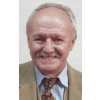The recovered paper market remains confused and fluid owing to many factors influencing the whole landscape. Even though the pandemic is less severe than it was in Italy, it is still impacting activities nationwide.
Latest official figures covering July show that paper and board production dropped 5.7% to slightly more than 5 million tons, with the graphic sector down 13%, tissue up 2.4% and packaging up 8% and on the increase, with a recovered paper consumption above 3 million tons and rising.
Italian paper industry association ASSOCARTA is continuing its battle with energy costs and associated tax penalties as it strives to implement the complexities of the circular economy.
Some mills were in production during August whereas others took breaks. Pro-Gest had been supposed to enter full production in Mantua but is still in stand-by mode.
Conditions for recovered paper operators are in danger of becoming even more confused by the costs of collecting/processing and by the sales prices for the final clean materials. Grants provided by COMIECO to some recovered paper consumers are disrupting the market. Meanwhile, mills are under pressure because their consumers are seeing a decline in demand for their main products and because some highly competitive offers of paper and board are coming from other countries.
Of course, battles over paper and board sales prices will duly influence domestic recovered paper prices. As a result, export activity is leading the way, helped in part by a stabilization of freight costs. OCC prices are at up to Euro 105 per tonne and mixed at Euro 35-40; meanwhile, soft mixed is nearer Euro 70-80 ex works, mainly for foreign destinations. Higher grades are following virgin fibre trends.
However, overseas markets are becoming tighter, with a reduction in demand from Turkey and some slowing among Indonesian and other Asian markets. The downside impact of this will probably be seen in October.
Recovered paper operators have welcomed official confirmation of the distinction between urban waste and normal industrial waste, allowing freedom of access to sources. Also of interest is confirmation that a simple trommel or rotating cylinder is not an effective sorting plant in its own right, but only part of one. Operators’ roles appear clear, with the first tasked with taking the original waste and turning it into a secondary raw material while the second operator acts as the final link in the chain and uses these secondary raw materials in a mill to produce final goods destined for the marketplace.
Of great interest is DS Smith’s campaign launched in Europe linking to the circular economy, with the target of informing the public about what is effectively recyclable and about consigning only unrecyclable wastes to landfill or thermal recovery. Such a campaign parallels a study into the optimization of packaging so as to reduce its material content to the minimum appropriate.

